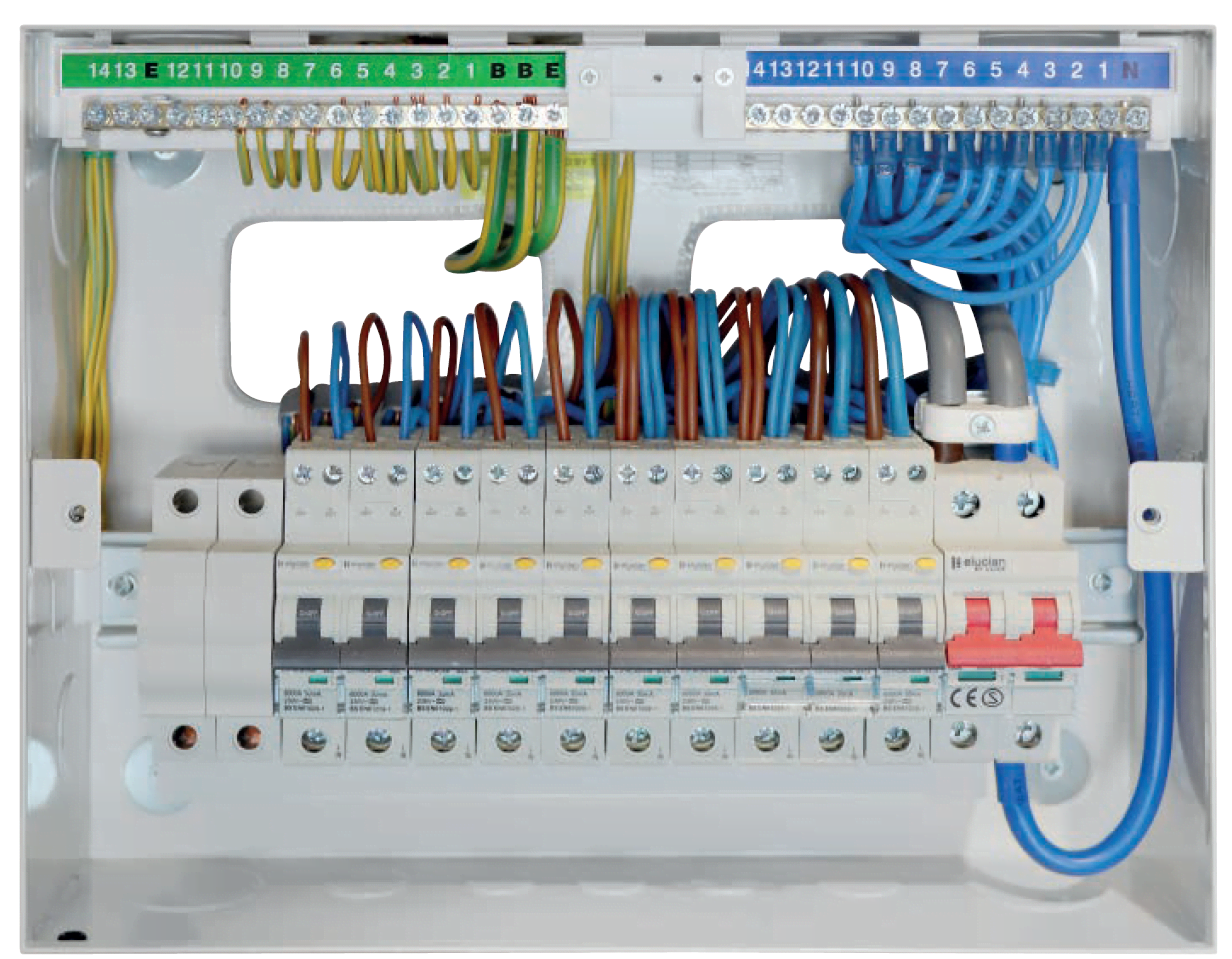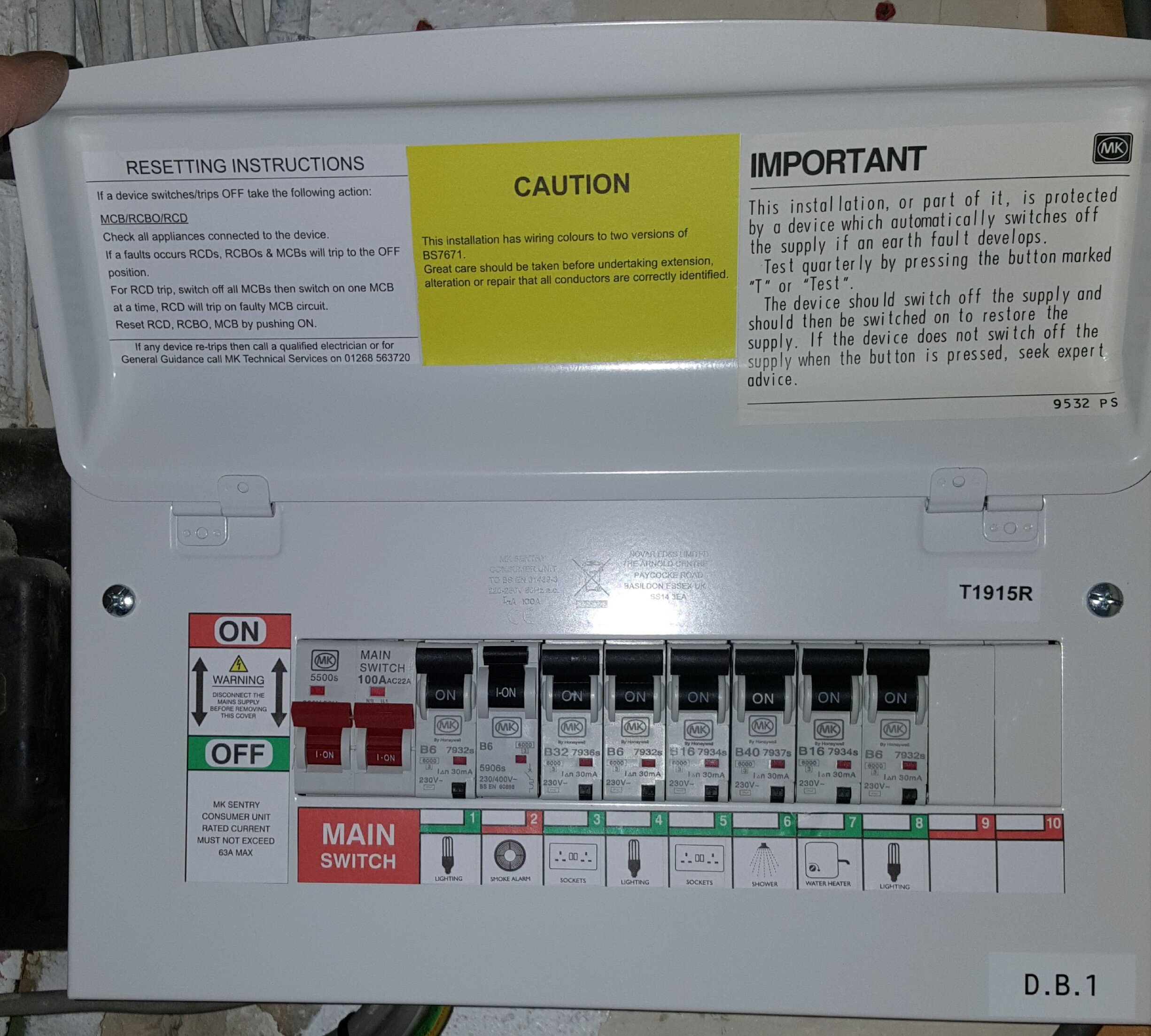The Duty of Customer Systems in Efficient Energy Administration Systems
Consumer systems are indispensable to reliable energy management systems, serving as the key circulation points for electrical power within frameworks. The arrival of clever innovations has actually additionally enhanced their functionality, allowing for real-time information monitoring and nuanced energy consumption evaluation.
Recognizing Customer Systems

Comprehending the role of consumer systems begins with identifying their necessary function in safeguarding electrical systems. By isolating faults within particular circuits, consumer units prevent extensive blackouts and possible fire dangers. This isolation is achieved via making use of circuit breakers that journey or integrates that impact when a mistake is identified, consequently reducing off the electrical flow to the affected circuit.
Moreover, customer systems assist in the organized distribution of power, boosting the effectiveness of energy usage. They enable the methodical administration of electrical loads, which can be especially essential in industrial and industrial settings where demand can rise and fall significantly. Effectively maintained customer systems add to the durability of electrical systems and aid in minimizing downtime brought on by electrical failures, eventually sustaining the seamless procedure of energy-dependent centers.
Smart Technologies Combination

A vital benefit of smart customer units is their ability to leverage progressed algorithms and equipment discovering for predictive analytics. This enables preemptive adjustments based upon usage patterns, weather prediction, and various other variables, significantly enhancing total efficiency. Wise customer devices assist in need feedback programs, where energy use can be dynamically adjusted during height durations to support the grid and decrease expenses.
The integration of renewable resource sources, such as solar and wind, is likewise streamlined with smart consumer devices. By wisely taking care of the intermittency of these sources, these devices make sure a well balanced and trustworthy energy supply. In addition, clever customer devices enhance user interaction by supplying comprehensive understandings and push-button control capacities via mobile applications, promoting an extra positive technique to power preservation and sustainability.
Surveillance Energy Intake
Building on the capabilities of clever technologies integration, keeping track of power usage ends up being a vital focus within power administration systems. By leveraging innovative metering facilities (AMI), real-time data on power usage can be accumulated at granular degrees, providing useful insights into usage patterns and peak need periods.
Smart meters and Net of Things (IoT) gadgets play an essential duty in this monitoring procedure. These tools can track power usage in real-time, transmitting data to central systems for analysis. The collected data is after that processed via innovative algorithms to discover abnormalities, anticipate future intake, and recommend optimization methods. Additionally, cloud-based services supply scalable systems for keeping and examining large datasets, facilitating remote tracking and control.
The integration of these innovations not just equips customers with comprehensive info concerning their energy usage however also supports utility companies in taking care of load distribution a lot more effectively. this post Ultimately, precise and constant monitoring is vital for achieving energy effectiveness, expense financial savings, and sustainability objectives within energy management systems.
Optimizing Appliance Use

One effective approach involves identifying optimal and off-peak hours to move energy-intensive activities, such as washing or dishwashing, to times when power demand is reduced. This not just reduces strain on the grid but likewise takes advantage of reduced energy tariffs. In addition, incorporating machine knowing algorithms permits predictive maintenance, ensuring devices run at ideal effectiveness and prolonging their lifespan.
Energy management systems can also include user-specific preferences and habits to tailor device usage timetables. As an example, smart illumination systems can change brightness based upon occupancy and all-natural light schedule, while heating and cooling systems can maintain convenience degrees without too much power use.
Encouraging Sustainability
Promoting sustainability within energy monitoring systems involves not just enhancing effectiveness however additionally promoting eco liable techniques. Customer units are essential to this procedure, as they offer real-time information and control systems that allow individuals to keep track of and lower their energy intake. By leveraging advanced innovations, consumer systems can recognize energy-saving opportunities and help with the combination of renewable resource sources like solar and wind power.
One vital element of advertising sustainability is educating customers on the advantages of responsible power use. Via thorough understandings supplied by consumer systems, users can make educated choices that lessen their carbon impact. For instance, these units can recommend ideal times for operating high-energy appliances based on grid need and eco-friendly power schedule, therefore decreasing reliance on fossil fuels.
Furthermore, customer units support the adoption of smart grid technologies, which boost the total efficiency and integrity of energy distribution. By making it possible for two-way interaction in between customers and utility providers, these systems can dynamically adapt to power demands, lowering waste and promoting using sustainable energy techniques.
Verdict
Consumer units, as essential elements of power administration systems, dramatically enhance electric safety and efficiency within structures with circuit defense and wise technology integration. In addition, the incorporation of eco-friendly power resources advertises lasting practices, adding to reduced general power usage and lower carbon footprints.
Advancements in wise modern technologies have actually revolutionized the capacities of power monitoring systems, especially via the integration of smart consumer devices.Building on the capabilities of smart modern technologies integration, keeping an eye on power intake comes to be a vital emphasis within energy administration systems.Reliable appliance use optimization is a vital part of power management systems, intending to enhance performance and lower unneeded power usage.Customer units, as important elements go to my site of power monitoring systems, considerably boost electric security and performance within structures with circuit security and wise modern technology assimilation. Furthermore, the consolidation of renewable power sources promotes sustainable practices, adding to reduced overall power consumption and lower carbon impacts.